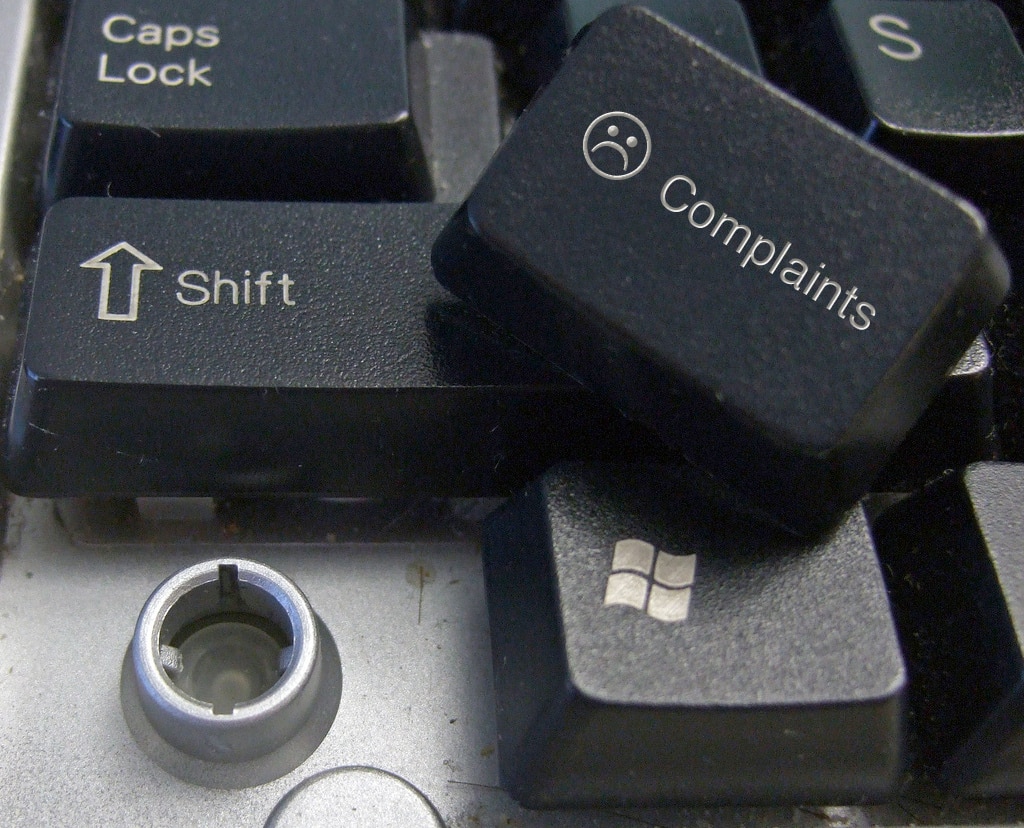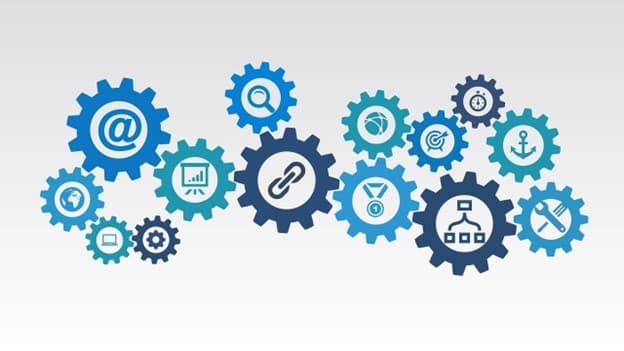Top 7 Reputation Management Tools
June 30, 2023
In today’s digital age, maintaining a positive online reputation is essential for organizations of all sizes.
With the vast amount of information available on the internet, it is easy for negative comments or reviews to damage a company’s reputation. That is why reputation management has become an essential part of any communication strategy.
Luckily, there are various tools available to help organizations monitor and manage their online reputation. These tools offer a number of key benefits organizations can leverage to their advantage.
In this discussion, we will focus on the top seven reputation management tools organizations can use to boost their online image. Additionally, we’ll provide insights into how organizations can maintain a great reputation with customers, stakeholders, and the public in general.
What is reputation management?
Reputation management is the practice of monitoring and influencing how an organization is perceived by its customers, stakeholders, and the public. This practice is especially important in the online world, where negative comments and reviews can spread quickly and damage a company’s reputation.

Reputation management involves tracking what is said about a company on social media, review sites, and other online platforms, and addressing customers’ concerns appropriately.
Reputation management can include responding to negative comments and reviews, addressing customer complaints, and implementing strategies to improve a company’s online reputation.
By actively managing their online reputation, organizations can build trust with their customers, improve their brand image, and ultimately improve and maintain a positive image.
Why is reputation management important?
Reputation management is crucial for organizations since a negative image can impact their objectives and overall success significantly. Negative comments, reviews, and media coverage can damage a company’s reputation and lead to a loss of trust from customers, stakeholders, and the public. This loss of trust can result in decreased sales, difficulty attracting new customers or investors, and a damaged brand image that may take years to repair.
Furthermore, negative feedback can spread quickly on social media and other online platforms, causing irreparable damage to a company’s reputation.
Reputation management involves proactively monitoring and managing a company’s online reputation and ensuring that negative comments or reviews are addressed promptly and appropriately.
By managing their reputation effectively, organizations can build trust with their customers, improve their brand image, and ultimately achieve their business objectives.
What are reputation management tools?
Reputation management tools are software programs or platforms that help organizations monitor and manage their online reputation.
These tools scan the web for any mention of the organization’s name, products, or services and analyze the sentiment of these mentions, whether positive or negative.
They can also track the organization’s social media accounts, review sites, and other online platforms where customers may leave feedback.

By using reputation management tools, organizations can get a clear picture of how they are perceived by their customers, stakeholders, and the public. These tools can help identify potential issues before they become serious problems, allowing organizations to take proactive steps to address them. For example, by responding to negative comments or reviews promptly, organizations can show their customers that they care about their feedback and are committed to resolving any issues.
On the whole, reputation management tools can help organizations improve and maintain their public image by providing constant monitoring, analysis, and the ability to take proactive steps to address any situations that may arise. Reputation management tools are essential for any organization looking to build and maintain a positive brand image.
What are the benefits of reputation management tools?
Reputation management tools provide many benefits to organizations, especially when it comes to building and maintaining a positive brand image.
By using these tools, organizations can proactively monitor their online presence and respond to negative comments or reviews. This approach helps build trust with users, customers, stakeholders, and the public in general, as it shows that the organization values feedback and is committed to addressing any issues.
Organizations can employ reputation management tools to build a communication agenda across all platforms, ensuring that their messaging is consistent and aligned with their overall brand image. This approach can help build a strong online presence, attract new customers, and retain existing ones.
Furthermore, reputation management tools can help organizations identify areas for improvement and implement changes to their products, services, or marketing strategies accordingly. By addressing these issues, organizations can improve their overall reputation while fostering a positive relationship with users and the public in general.
Reputation management tools are key components of any organization’s communication strategy. Without them, monitoring comments and reviews across multiple platforms can become an overwhelming task. These tools ensure that nothing falls through the cracks, especially considering the importance of user engagement in today’s business landscape.
The Top 7 Reputation Management Tools

The following reputation management tools lead the pack, allowing organizations to effectively manage communication across various channels and platforms while proactively addressing issues.
Google Alerts
Google Alerts is a free tool that allows businesses to monitor their brand mentions online. The tool sends email notifications whenever there is a mention of the company’s name or any other keyword that the business wants to monitor.
With Google Alerts, businesses can respond quickly to negative comments or reviews and take appropriate action to address customers’ concerns.
Brand24
Brand24 is a comprehensive online reputation management tool that allows businesses to monitor their brand mentions across the internet. The tool provides real-time updates on brand mentions on social media platforms, blogs, forums, and news sites.
With Brand24, businesses can track sentiment analysis, identify influencers, and monitor their competitors. The tool also allows businesses to respond to comments and reviews directly from the platform, making it easy to manage their online reputation from a central location.
Hootsuite Insights
Hootsuite Insights is a social media listening tool that allows businesses to monitor social media mentions of their brand, products, or services. The tool provides real-time updates on brand mentions, sentiment analysis, and key metrics such as reach and engagement.
With Hootsuite Insights, businesses can identify trends, monitor their competitors, and respond to comments and reviews directly from the platform.
Mention.com
Mention.com is an online reputation management tool that allows businesses to monitor their brand mentions across social media, blogs, forums, and news sites. The tool provides real-time updates on brand mentions. It allows businesses to track sentiment analysis, identify influencers, and monitor their competitors.
Mention.com also allows businesses to respond to comments and reviews directly from the platform, making it easy to manage their online reputation from a central location.
SEMrush
SEMrush is an all-in-one digital marketing tool that provides a range of features, including online reputation management. The tool allows businesses to monitor brand mentions, track sentiment analysis, and identify influencers across social media, blogs, and news sites.
SEMrush also provides detailed analytics and insights into online reputation management, making it easy for businesses to track their progress and make informed decisions.
Reputation.com
Reputation.com is a comprehensive online reputation management tool that provides a range of features, including review management, social media monitoring, and sentiment analysis. The tool allows businesses to monitor their online reputation across multiple platforms, including social media, review sites, and news sites.
Reputation.com also provides detailed analytics and insights into online reputation management, making it easy for businesses to track their progress and make informed decisions.
Trustpilot
Trustpilot is a review platform that allows businesses to collect and manage customer reviews. It provides real-time alerts for new reviews and allows businesses to respond promptly to negative feedback.
Trustpilot is arguably the most recognized and trusted reputation management tool in the market. Organizations across all industries use Trustpilot to boost their social proof, allowing them to maintain a positive brand image.
Best Practices for Reputation Management
Maintaining a positive brand image and solid relationships with the public is an ongoing endeavor. The following best practices can help organizations stay on top of their game, boosting their brand image and public relations.
- Respond to negative comments. It is important for organizations to actively monitor their online reputation by utilizing reputation management tools such as social media monitoring software, review management platforms, and Google Alerts. This approach allows them to respond quickly to negative comments or reviews and take proactive steps to address potential issues before they become a larger problem.
- Offer a solution. When negative comments or reviews arise, organizations must respond promptly and professionally. This effort shows that they actively engage with the public and care about their experience. Addressing any specific issues raised in the comment or review and offering solutions or compensation, if appropriate, can help mitigate any potential damage to the brand’s reputation.
- Encourage positive comments. Encouraging satisfied customers to leave positive reviews on review sites or social media platforms can help offset any negative reviews and build trust with potential customers and the public in general.
- Maintain a consistent brand image. Maintaining a consistent brand image is key to a positive brand image online. Ensuring that all messaging, logos, and branding are consistent across all platforms can help build a strong brand identity and recognition.
- Stay engaged with the public. Staying engaged with the audience is important for building trust and loyalty. Responding to comments and messages promptly and interacting with followers on social media can help build a sense of community and connection with the brand.
These best practices don’t represent any additional burden to any organization’s existing communication strategy. If anything, they represent an opportunity to build and foster positive public relations while reaping the benefits of consistent and ongoing engagement with users, customers, stakeholders, and the public in general.
How can a professional writing agency help improve reputation management?
A professional writing agency can be an invaluable resource for organizations looking to build and foster their reputation management practices. Such an agency can provide a range of services to improve the organization’s public image and maintain a positive reputation online.

One way in which a professional writing agency can assist is by providing expertly crafted content for the organization’s website, social media profiles, and other digital platforms.
This content can be tailored to the organization’s specific needs, emphasizing promoting a positive image and engaging with users meaningfully.
In addition to content creation, a professional writing agency can also help develop and implement a comprehensive reputation management strategy. This support might include regular monitoring of online mentions and reviews and proactive steps to address any negative feedback or comments.
Working with a professional writing agency can be an effective way for organizations to build and maintain a positive reputation online. By leveraging the expertise of experienced writers and reputation management specialists, businesses can develop a strong brand identity, foster customer loyalty, and ultimately achieve their broader marketing and business objectives.
Ultimately, working with an experienced writing agency is an investment. The savings in time and effort can quickly translate into an enhanced brand image, allowing organizations to achieve their aims. While detractors may claim that the cost of employing a writing agency is high, they fail to realize that the cost of doing nothing can be far greater.
One Final Thought
Reputation management has become an essential part of any organization’s communication strategy. Maintaining a positive public image online is crucial for building trust with customers, users, stakeholders, and the general public. As such, organizations must be proactive in monitoring and managing their online reputation, responding promptly to negative comments or reviews and encouraging positive feedback.
Working with a professional writing agency can provide a valuable support system for organizations looking to build and foster their reputation management practices. With their expertise in content creation, digital marketing, and reputation management, these agencies can help businesses develop a strong and consistent brand identity across all platforms. They can also assist with developing and implementing a comprehensive reputation management strategy, enabling organizations to monitor and respond to online feedback effectively.
In conclusion, the benefits of reputation management cannot be overstated. By leveraging the support of a professional writing agency, organizations can enhance their communication strategies, build and maintain a positive public image, and ultimately meet or exceed expectations.
































